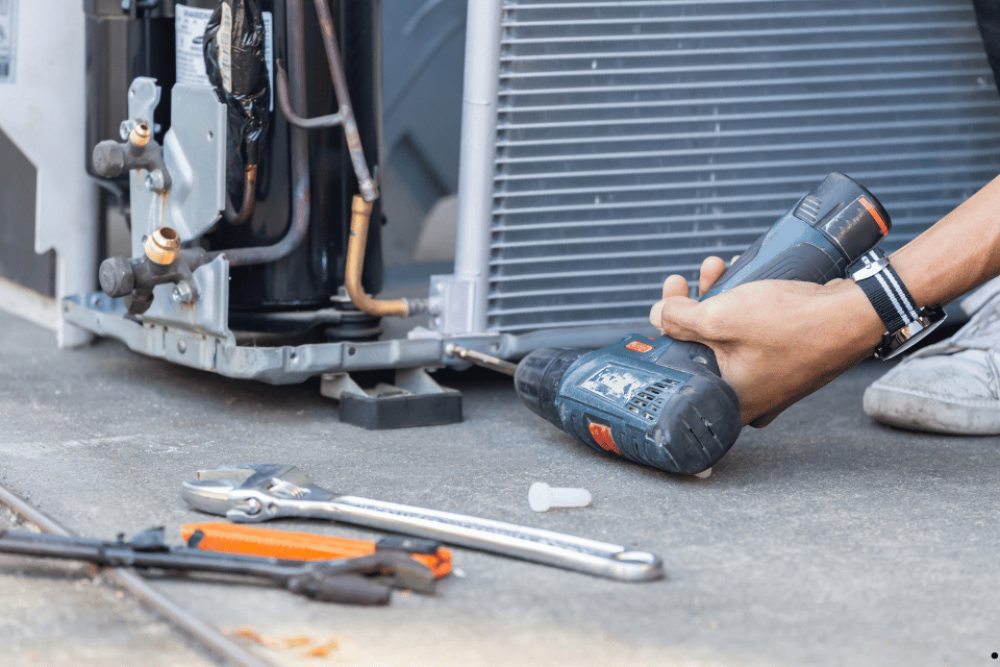
The Complete Handbook to HVAC Installation: A Comprehensive Guide
Installing HVAC systems is a crucial investment for homeowners, ensuring comfort and climate control throughout the year. Navigating the complexities of HVAC installation, from choosing the right system to understanding installation processes and maintenance, can be daunting. We will explore everything you need about King HVAC installation, from system selection to installation techniques and maintenance tips.
Selecting the Right HVAC System
Choosing the appropriate HVAC system begins with assessing your home's size, layout, and specific heating and cooling needs. HVAC systems vary in types, such as central air conditioning, heat pumps, and ductless mini-split systems. Each type offers distinct advantages based on efficiency, space requirements, and initial cost. Consultation with HVAC professionals can provide valuable insights tailored to your home's requirements, ensuring optimal performance and energy efficiency.
Understanding HVAC Installation Procedures
Understanding the installation process is essential once you've selected the ideal HVAC system. Installation typically involves several steps, including a thorough assessment of existing ductwork or the need for new duct installation. Proper sizing of HVAC components and efficient placement within the home are critical to ensuring even air distribution and maximizing energy efficiency. Skilled technicians meticulously follow manufacturer guidelines and local building codes to guarantee safe and effective installation.
Preparing Your Home for HVAC Installation
Preparing your home before HVAC installation is crucial to streamlining the process and minimizing disruptions. Key considerations include clearing pathways to ventilation points, ensuring adequate space around the installation site, and protecting flooring and walls from potential damage. Additionally, scheduling installation during mild weather can prevent discomfort due to temporary heating or cooling loss during the process. Adequate preparation ensures that technicians can work efficiently, completing installation promptly and with minimal inconvenience.
The Role of HVAC Professionals
HVAC installation is a specialized task that demands expertise and precision. Professional technicians possess the knowledge and training to handle complex HVAC systems effectively. Their role extends beyond installation, including system testing, calibration, and ensuring all components operate seamlessly. Hiring certified HVAC professionals guarantees adherence to safety standards and manufacturer specifications, safeguarding your investment and ensuring long-term performance.
Ensuring Energy Efficiency
Energy efficiency is a significant consideration in HVAC installation, impacting operational costs and environmental footprint. Choosing Energy Star-rated systems and implementing proper installation techniques such as duct sealing and insulation contribute to enhanced efficiency. Regular maintenance, including filter replacement and system inspections, preserves efficiency over time. Optimizing your HVAC system's efficiency reduces utility bills and supports sustainability efforts, making conscientious choices for the environment.
Routine Maintenance and System Care
Once installed, ongoing maintenance is essential for preserving HVAC system performance and longevity. Regular inspections by HVAC professionals detect potential issues early, preventing costly repairs and ensuring optimal efficiency. Tasks such as cleaning coils, checking refrigerant levels, and inspecting electrical components should be performed seasonally to maintain peak performance. Homeowners can also contribute to system care by replacing filters regularly and monitoring thermostat settings to optimize comfort and energy usage.
Troubleshooting Common HVAC Problems
Understanding common HVAC issues allows homeowners to identify and address problems promptly. Issues like inadequate cooling or heating, unusual noises, or erratic airflow may indicate issues requiring professional attention. Familiarizing yourself with HVAC components and their functions empowers homeowners to communicate effectively with technicians and make informed decisions about repairs or upgrades. Prompt resolution of problems maintains indoor comfort and prevents potential system failures during extreme weather conditions.
Choosing Quality HVAC Components
Quality components are essential for reliable HVAC performance. When selecting HVAC systems, prioritize reputable brands known for durability and efficiency. High-quality components enhance system longevity and reduce the likelihood of breakdowns and maintenance costs over time. Additionally, warranties offered by manufacturers and contractors should be considered, providing added peace of mind against unexpected repairs. Investing in quality upfront pays dividends in terms of long-term reliability and comfort.
Environmental Considerations in HVAC Installation
Environmental considerations play a significant role in modern HVAC installation practices. Sustainable options such as geothermal heat pumps and solar-powered HVAC systems are gaining popularity due to their reduced carbon footprint and energy efficiency. Integrating eco-friendly HVAC solutions lowers utility bills and aligns with global efforts to mitigate climate change. By adopting environmentally responsible HVAC practices, homeowners contribute positively to environmental conservation while enjoying efficient home comfort solutions.
Choosing the Right HVAC Contractor
Selecting a reputable HVAC contractor ensures successful installation and long-term satisfaction. Research potential contractors thoroughly, checking licenses, certifications, and customer reviews. Experienced contractors offer valuable insights into system selection, installation best practices, and ongoing maintenance strategies. Clear communication regarding project timelines, costs, and warranty details is crucial for a transparent and satisfactory experience. Partnering with a trusted HVAC contractor establishes a collaborative relationship focused on delivering superior results and optimal HVAC performance for your home.
HVAC installation is a multifaceted process that begins with selecting the right system and extends through careful installation and ongoing maintenance. By understanding the nuances of HVAC systems and partnering with qualified professionals, homeowners can ensure their HVAC investments' efficient operation, comfort, and longevity. Regular maintenance and proactive troubleshooting enhance system performance, supporting energy efficiency and minimizing operational costs. Navigating HVAC installation becomes manageable, ensuring optimal indoor comfort and climate control year-round.

